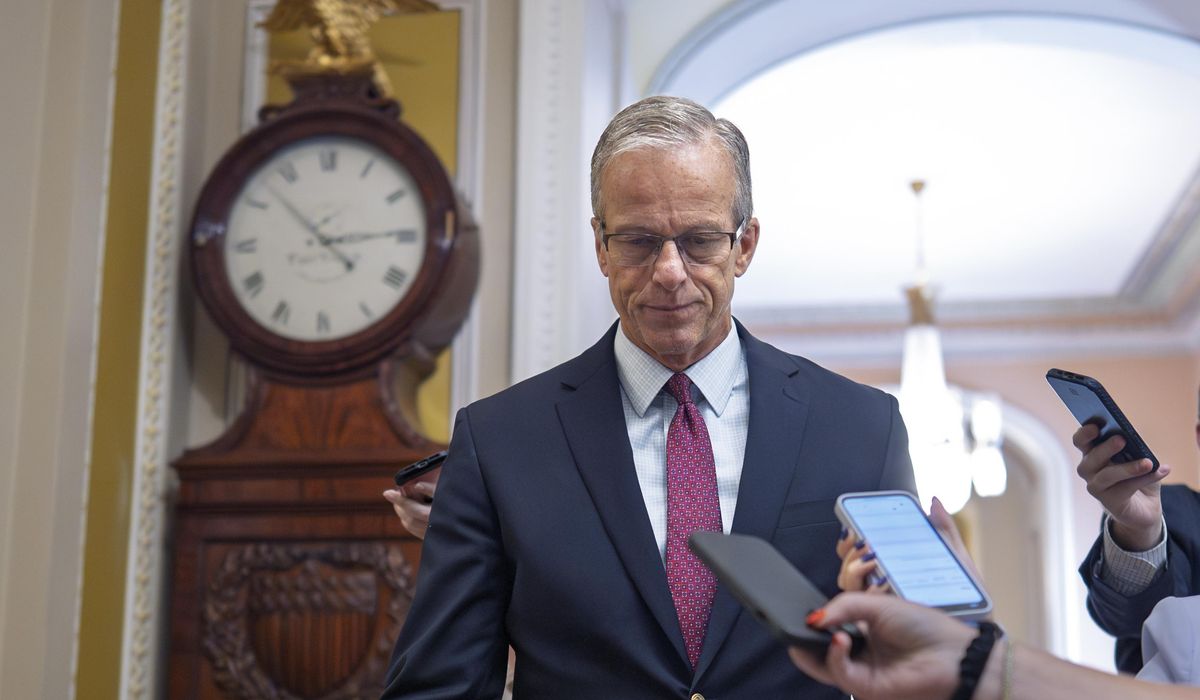


The Senate early Tuesday voted to quash an effort to impose a 10-year moratorium on state regulation of artificial intelligence.
The vote removed the AI provision from President Trump’s “big, beautiful bill” that Senate Republicans are struggling to pass.
The Senate began a series of nonstop votes on the bill around 9:30 a.m. Monday morning and as of 6 a.m. Tuesday was still considering amendments and dilatory motions.
GOP leaders worked through the night to sway fence-sitting members to vote for the bill, but have not yet locked down the 50 votes they will need to pass it with Vice President J.D. Vance available to break a tie.
The AI regulation ban that senators stripped from the bill has changed several times.
It started in the House as a full moratorium on state regulation of AI for the next decade. The Senate had to amend it to comply with rules for the budget reconciliation process, so initially crafted a proposal that said states must adopt the ban if they wanted to continue receiving federal broadband funding.
The most recent version and the one ultimately stripped from the bill was a watered-down proposal. Instead of forcing states to adopt the ban, it would have incentivized them to do so by tying it to $500 million in funding for the deployment of AI models or systems.
Sen. Marsha Blackburn opposed the proposal but attempted to work with Senate Commerce Chairman Ted Cruz, Texas Republican, on a compromise.
They discussed reducing the regulatory moratorium to five years and adding some exceptions. But Ms. Blackburn said they couldn’t agree to “acceptable language that allows states to protect their citizens from the abuses of AI.”
She then teamed up with the Commerce panel’s top Democrat, Washington Sen. Maria Cantwell, to strip the AI language from the bill and preserve states’ ability to issue regulations while the federal government struggles to adopt universal standards.
“This body has proven that they cannot legislate on emerging technology. It is frustrating,” she said, noting states are the ones that are protecting children, content creators and others in the virtual space.
Ms. Blackburn’s amendment passed 99-1, with even Mr. Cruz voting to strike his own proposal.
Sen. Thom Tillis, North Carolina Republican, was the only senator to vote “no.”
He and Sen. Rand Paul, Kentucky Republican, have announced plans to vote against the bill, leaving GOP leaders with room for only more defection if they hope to pass the bill.
Republicans have spent much of the night negotiating with Sen. Lisa Murkowski, Alaska Republican, a key swing vote who has sought to protect her state from the bill’s cuts to the Supplemental Nutrition Assistance Program, known as food stamps, and Medicaid.
Republicans had drafted some carve-outs for Alaska, but some were ruled out of compliance with the Senate rules.
Senate Majority Leader John Thune, South Dakota Republican, walking with Ms. Murkowski to his office shortly after 3:30 a.m., said he was “still working on” fixes to the SNAP cuts that would appease Ms. Murkowski.
When the duo emerged, their facial expressions signaled that talks were not going well.
Mr. Thune gave an exasperated pause when asked if he had to hold a vote on final passage or had the ability procedurally to pull the bill.
“Those are options I don’t want to have to worry about,” he said.
Three GOP fiscal hawks, Sens. Ron Johnson of Wisconsin, Rick Scott of Florida and Mike Lee of Utah, are also fence-sitters who were spotted negotiating with GOP leaders throughout the night.
Mr. Lee offered an amendment to more quickly phase out tax credits for wind and solar energy. It failed 21-79, with more than half of Republicans joining Democrats in opposition.
Mr. Scott had been planning to offer an amendment to cut the 90% federal share of Medicaid spending on able-bodied adults who enroll in the program starting in 2031 but had yet to do so as of 6 a.m.
• Lindsey McPherson can be reached at lmcpherson@washingtontimes.com.
